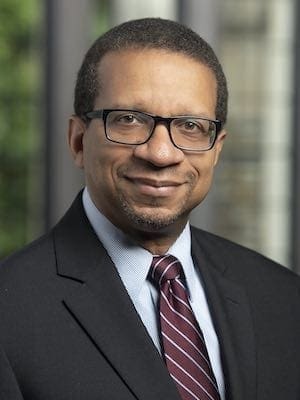In “The Breakthrough: Politics and Race in the Age of Obama,” Gwen Ifill helps people to think about the meaning of recent political achievements of black politicians who are realizing electoral success in new ways. The landscape seems to be shifting as we witness a new generation of leaders ascending to a variety of elected positions across the country. These leaders are achieving electoral success and viewing their journeys and their attainments through different lenses than their predecessors.
Using her journalistic experience and political networks, Ifill draws extensively on personal interviews to discern something of how this generation of elected leaders views their successes as connected to and benefiting from the civil rights movement and the struggles against the history of racial oppression in the United States. This new generation of political leaders is seeking to build futures for themselves and the people they serve in new and innovative ways.
These leaders have enjoyed educational access made available by the successes of the civil rights movement. Their strategies have required seeking and winning support from white voters, convincing them to “cross over” to vote for black candidates just as black voters have done for generations. Their commitments are to build coalitions that enable them to go beyond race-specific supporters and agendas.
Their governance styles are less influenced by traditional political approaches and more influenced by business systems and strategies. There seems to be a re-evaluation of what it means to be a black politician. They are not waiting their turns and moving through traditional paths of civil rights organizations or political machines.
Ifill’s book makes a convincing case that “re-evaluation is clearly under way, as black politicians elected to represent a more diverse electorate balance conservative solutions such as school vouchers and tougher sentencing against more liberal priorities, including affirmative action and reducing recidivism.” She also notes, however, the worry of some that African-American political power could erode if the emergent leaders’ approach to looking forward does not properly regard the past.
There is no firm answer on what it means for an African-American to have been elected the 44th president of the United States of America. There is no consensus concerning what it means that a majority white, as well as Latino, voters supported Barack Obama’s campaign. It does not mean that the vicious history of racism has been mollified. There is ample evidence to refute that idea.
However, Ifill concludes her narrative by asserting that “there is little question that we in this country may be reaching the end of the ‘firsts.’ Perhaps breakthroughs are on the verge of becoming enough of a part of the national political landscape that at some point we will cease noticing them altogether.”
“The Breakthrough” is a helpful contribution to the ongoing discussion of what the election of Barack Obama might mean because it places his election within a broader context of other trends in the country. Her explorations of the political success of Newark’s Mayor Corey Booker, Alabama’s Congressman Artur Davis, and her references to a number of other local and statewide elected officials who have progressed through the sandpaper friction of breakthrough politics point to the fact that something is happening politically in the United States beyond the election of its first African-American president.
Insights gleaned from this work can be useful in other 21st-century conversations that seek to discern something of the implications of and possibilities for other breakthroughs in areas of education, business, religion, civic life and the like.
While it is too early to make definitive conclusions about meaning and implications, something new seems to be happening that demands fresh consideration of the historical framework of the chasms of black-white dynamics in this country.
David Emmanuel Goatley is executive secretary treasurer of the Lott Carey Baptist Foreign Mission Convention.

